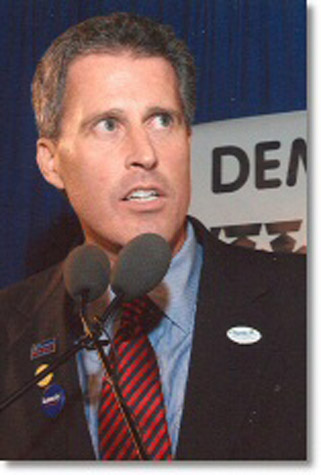And as mayor of the largest city in the smallest state, Cicilline enjoys broad name recognition. That comes with baggage, of course. His mistakes have been magnified. And his high-profile engagement with urban affairs could leave suburban voters wondering if he has their interests at heart.
Indeed, observers say the "big-city mayor" problem probably contributed to Cicilline's decision to skip this year's gubernatorial race. But that problem may not be as pronounced in a run for Congress, where voters are looking for a principled advocate rather than a circumspect executive.
Cicilline served as a state legislator before he ascended to City Hall. And his voting record will, of course, provide a target for opponents. But his work in the Assembly will be a plus, on balance.
Indeed, political observers have long suggested that the legislature proved a more natural fit than the mayor's office. And that bit of conventional wisdom, which has dogged him in recent years, could buoy him now.
Cicilline developed strong progressive credentials when he served in the state legislature. And that brand of politics should play well with the left-leaning electorate in a Democratic primary.
Of course, Cicilline's liberal reputation may be stronger outside the city than within it these days. In Providence proper, the city's lefty activist crowd has grumbled about a move to the middle. But Cicilline is still expected to rack up large margins in those portions of the city that fall in the First Congressional District — particularly the tony East Side, which the mayor calls home.
Still, Cicilline will not be able to tap his other power center, the South Side, an impoverished neighborhood with a sizable Latino population that falls in Langevin's district. Indeed, his geographic base will be roughly on par with that of his chief rival. In the general election of 2008, Providence voters cast 11.5 percent of First District ballots, while Lynch's Pawtucket accounted for 10.9 percent of the electorate.

Bill Lynch |
THE CHAIRMAN
Lynch's family, as his campaign spokesman Bill Fischer likes to say, has been in the district for more than 100 years. His late father Dennis was mayor of Pawtucket from 1973 to 1981. Lynch served on the Pawtucket City Council from 1986 to 1992.
The erstwhile party chairman is banking on significant support from Pawtucket and the larger Blackstone Valley region. And he would improve his prospects if he can convince Cumberland Mayor Daniel J. McKee, an old family friend, to stay out of the race.
Two other possible candidates, State Representatives Jon Brien of Woonsocket and Edwin Pacheco of Burrillville, also pose threats to Lynch's Valley appeal. But his challenges will not be simply geographic.
Lynch's younger brother Patrick, the state's attorney general, is running for governor. And no one is quite sure how voters will respond to seeing two Lynches on the same ballot — a source of some tension between the pair.
There are other issues, too. With no real voting record, Lynch has a certain flexibility in defining himself. But Lynch's scant service in elected office means he is a little-known quantity outside political circles.
And the image he has forged, during his years as party chairman, is one of partisan pit bull — an image that could be particularly troublesome at a time of pronounced public revulsion over bickering in Washington.